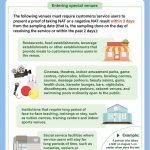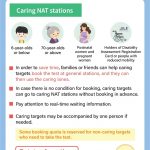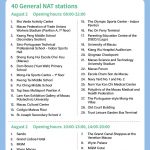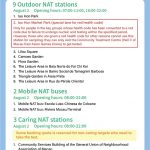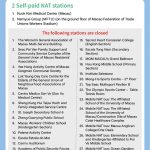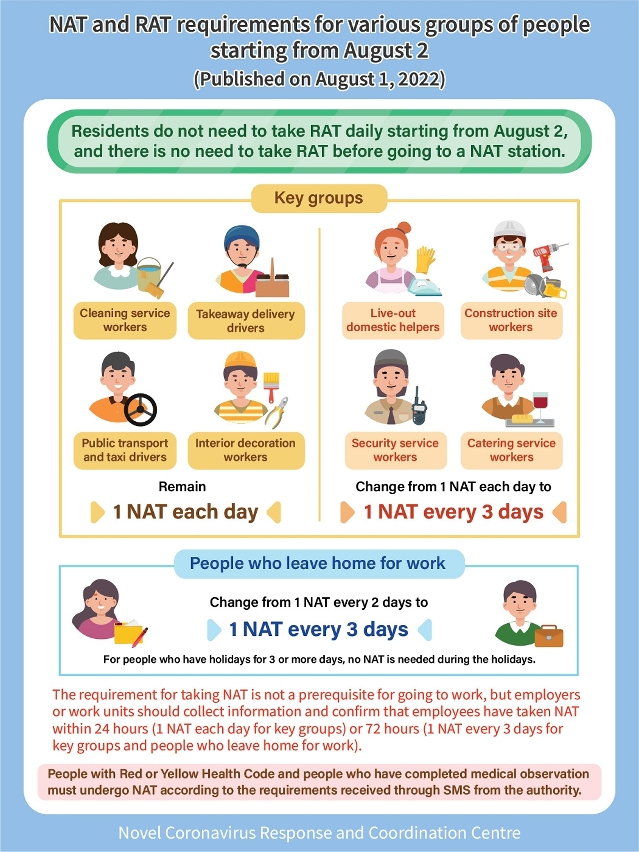 nat and rat requirements for various groups of people starting from 2 august_01
nat and rat requirements for various groups of people starting from 2 august_01
The Novel Coronavirus Response and Coordination Centre announces that after risk analysis, starting tomorrow (2 August, Tuesday), the nucleic acid testing (NAT) arrangement for key groups and those who need to leave home for work will be adjusted as follows:
Key groups for whom daily testing is maintained:
Workers in the cleaning services industry, food delivery workers, bus and taxi drivers, and interior furnishing workers.
Population groups for whom the testing frequency is reduced from daily to every 3 days:
Stay-out domestic helpers, construction site workers, and people who work in the industries of security services and catering services.
Population groups for whom the testing frequency is reduced from every other day to every 3 days:
People who need to leave home for work (If off work for 3 days or more, no nucleic acid test will be required during the absence period).
NAT requirements for admission to specified venues
Upon entry into the specified venues below, customers/service users shall be required to present proof of negative result or proof of sampling for COVID-19 nucleic acid test within 3 days (i.e. having a nucleic acid test on the day of receiving the service or within the past two days). For example, if one has undergone sampling on 1 August, he/she will be allowed to enter relevant venues on 1, 2 and 3 August, regardless of when the result is out:
- Restaurants, food and beverage establishments, or other establishments which provide food or beverage to their customers/service users on-site;
- Cinemas, theatres, indoor amusement parks, game centres and video game rooms, cybercafes, billiard rooms, bowling centres, saunas, massage parlours, beauty salons, gyms, health clubs, karaoke lounges, bars, nightclubs, discotheques, dance parlours, cabaret venues, and swimming pools ordinarily open to the public;
- Tutorial centres, training centres, indoor sports centres and other institutions which requires face-to-face teaching, training or staying for prolonged periods;
- Creches, day centres for elderly or rehabilitation services and other social service facilities where service users will stay for a long time (as specified by the Social Welfare Bureau).
NAT requirements for holders of red or yellow health code, as well as those who have completed medical observation
Red code holders, yellow code holders and persons discharged from medical observation must undergo nucleic acid testing according to the SMS notification sent by the authorities.
Booking for free NAT and self-paid NAT
Members of the public may schedule a NAT booking via https://eservice.ssm.gov.mo/allpeoplernatestbook; relevant test results cannot be used for border-crossing purposes. There are self-paid stations (prior booking is required) in place to provide paper NAT report; their test results will be uploaded to the Macao Health Code and can be used of border-crossing purposes,
NAT requirement is not a condition for going to work
The NAT is not considered as a prerequisite for going to work, and employers are encouraged to exercise discretion and allow employees/staff to go for testing during working hours, which helps to divert flow of people. Meanwhile, the employers or working units should collect information and confirm that their employees/staff have been sampled within 24 hours (for 4 key groups) or 72 hours (for 4 other key groups and people leaving home for work).
Rapid antigen testing requirement
Starting from 2 August, the public is no longer required to perform rapid antigen testing on a daily basis, nor do they need to take a rapid antigen test before going to nucleic acid testing stations for sampling. However, they should keep the remaining government-distributed antigen test kits properly for future use when so indicated.



